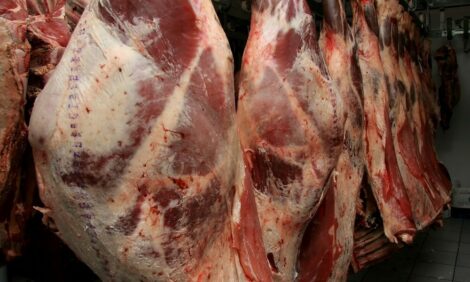



Call For Home Market in Ethical Veal as Calves are Killed Over Export Ban
UK - A campaign to promote home-reared veal and young beef aims to end the export of live calves to the Continent.The veal market is worth £2 million a year, but industry experts believe there is room for rapid growth if the welfare conditions are right and accepted by consumers.
The effort to promote veal and young beef has become more urgent since the foot-and-mouth outbreak in August stopped all live exports. In just four months since the disease outbreak 70,000 day-old calves have been destroyed because, without the export market, they are worthless.
The earliest chance for live exports to resume will be in the new year, if veterinary experts at the European Commission agree. A Beyond Live Exports working group chaired by Lord Rooker, the Minister for Farming and Animal Welfare, is trying to put in place a national production scheme that ensures the rearing of a calf from birth until it is ready for slaughter in optimum welfare conditions.
Industry figures are working on two objectives. One is for the production of rosé veal, where calves will live outdoors, be fed on a mixture of grass and milk and slaughtered at 10 to 12 months. The other is for calves to be fattened on grass until they are 16 to 19 months, to produce young beef.
Source: Times Online


